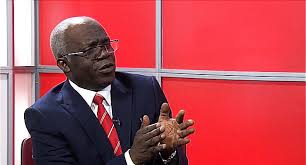Not a few defenders of neoliberalism have criticised the judgment of the Federal High Court which has mandated the Federal Government to fix the prices of essential commodities in the country. The criticism of the judgment is based on the fact that Nigeria is a capitalist country. It is surprising that such critics are not aware that the leading capitalist countries in the world fix and regulate the prices of certain goods and products.
According to Hugh Rockoff, governments in the United States “have fixed the price of gasoline, the rent on apartments in New York City, and the wage of unskilled labor, to name a few. At times, governments go beyond fixing specific prices and try to control the general level of prices, as was done in the United States during both world wars and the Korean War, and by the Nixon administration from 1971 to 1973.”
In response to the growing demand for rent control in the United Kingdom, the Mayor of London, Sadiq Khan said that: “Londoners re-elected me on a manifesto pledge to push for the powers to control rents and I will not stop advocating for this lifeline on their behalf. I am delivering on my promise to build a better, fairer and more prosperous London by building more affordable homes in the capital and providing vital support to Londoners through the cost-of-living crisis. It’s about time the Government did the same.”
Notwithstanding that Nigeria operates a so-called free market economy, several laws have imposed a duty on the Federal Government and State Governments to regulate the prices of fuel, tickets for train and domestic air travels, schools fees paid in government colleges and tuition in tertiary institutions, water rates, electricity tariffs, telecom call rates, tolling fees paid by road users, land use charge, fees for land documentation, rents paid by tenants and wages paid to workers. The Federal Government has just set up a Wages Review Panel to recommend the minimum wage payable by the public and private sectors in the country.
The Federal Government fixes duties on goods imported into the country. The Nigeria Customs Service is legally obligated to collect such duties. However, the Government has decreed that import duties shalll not be paid in respect of certain goods and products, including all basic foods items, medical and pharmaceutical products, books and educational materials, baby products, fertilizer, locally produced agricultural and veterinary medicine, farming machinery and farming transportation equipment, plant and machinery imported for use in the export processing zone.
Some private companies that are required to pay import duties running to several trillions of Naira are granted duty waivers by the Federal Government. Can the Federal Government allow the beneficiaries of duty waivers to fix the prices of the goods without control? ? Can the Federal Government equally allow the importers of duty free goods to fix the prices of such goods without regulation?
The Central Bank of Nigeria is legally obligated to fix the exchange rate of the Naira visavis other currencies. Contrary to the letter and spirit of the Central Bank Act the federal government has continued to devalue the Naira through dollarisation.
The federal government has also floated the currency to allow market forces to fix the exchange of the Naira. But the various circulars recently issued by the CBN, in the last few days, have confirmed that the federal government cannot afford to allow market forces alone to fix the exchange rate of the Naira.
Services provided by a number of professional bodies are fixed and controlled by law. For instance, any lawyer who fails to pay the annual practising fees shall be denied audience in courts. The Stamp and Seal (purchased from the Nigerian Bar Association) shall be affixed to all documents including court processes prepared by lawyers. In addition, the 2023 Legal Practitioners Remuneration Order has fixed the professional fees charged by legal practitioners. Any lawyer who fails to comply with the Remuneration Order shall be sanctioned by the Legal Practitioners Disciplinary Committee.
In view of the foregoing, the Order of the Federal High Court which has directed the Federal Government to control the prices of essential commodities in Nigeria is in accordance with section 16 (1)(b) of the Constitution which has imposed a legal obligation on the Government to control “the national economy in such manner as to secure the maximum welfare, freedom and happiness of every citizen on the basis of social justice and equality of status and opportunity.”
Last week, Vice President Kashim Shettima announced the plan of the Bola Tinubu administration to set up a Commodity Board which will be given the mandate to assess and regulate food prices, as well as maintain a strategic food reserve for stabilising prices of crucial grains and other food items. That’s the way to go if the poor in the society are to “breathe” as the implementation of the reforms embarked upon by the Tinubu administration gather pace.
The plan is in accordance with the Fifth Alteration to the Constitution of the Federal Republic of Nigeria, 1999 which stipulates that the Government shall direct its policy towards ensuring the right to food and food security for the people. It is also a revival of the Commodity Boards that were abolished as part of the conditionalities of the World Bank-inspired Structural Adjustment Programme (SAP) that was imposed on Nigeria in 1986 by the General Ibrahim Babangida regime.
This is a welcome development as the official announcement comes after the federal high court in Lagos ordered the federal government on February 7, 2024, to fix the prices of goods and petroleum products within seven days. However, the Federal Government is urged to reduce the skyrocketing duties and tariffs on essential commodities that are imported into the country so as to make them cheap and affordable in line with the terms of the judgment of the Federal High Court.



